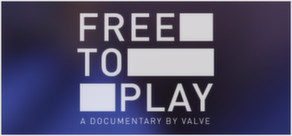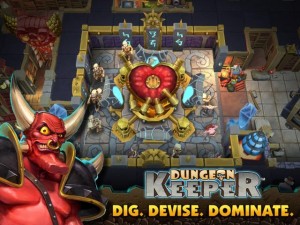I have no problem admitting that I enjoy Titanfall. But especially after playing it for, currently, 50 hours, I feel the game could have been (and still could morph into) an amazing free to play opportunity for everyone (though I also argue that some of the benefits have already sailed away).

Why everyone wants this
I feel that as a consumer, the idea of getting a product without spending money is obviously more attractive. But companies want this too. I’ll even go so far as to say that multiplayer games in general all want to be free to play in reality.
Love for the companies involved
Though EA was the publisher of Titanfall, Microsoft had a lot to do with it as well. And given they both were nominated for worst company in America for 2014, I would argue that, especially on the gaming front, they both really have some public image issues. So why not pony up a fun game to try to make people happier? The developers have a history of making successful games, so it wasn’t a huge risk about not making people happy with the quality. And beyond that, the marketing feels more like a public service announcement when all you have to do is download and play.
Customers you didn’t know you had
And this can drive sales of other things. With our hindsight glasses firmly in place, we can see that Titanfall was the best selling software yet the PS4 still sold more hardware. For reference, the PS4 has sold about 2 million more units as of March (when Titanfall released). There are also Xbox 360 players and PC players for Titanfall, but all of that means money for Microsoft. It’s a great idea to get more Xbox Ones in people’s hands and a game that is free is a great motivator. There were bundles to make it free, but we’ll talk about why that isn’t good enough.
For EA, the PC market is more interesting. Steam is the powerhouse of digital distribution for the PC, but EA wants more people to use their Origin service. A great way to solve that is to give them a reason to install it. Yes, the On the House promotion is nice, but giving away a 5.5 year old game that has 2 sequels already lacks the punch of something shiny. But giving away Titanfall could drive all of this good will and other game sales. There could easily be unobtrusive ads for other games on loading screens or other places that doesn’t degrade the experience.
And then there is the core of free to play: there are things to sell. We’re taking a pie-in-the-sky approach, so let’s assume that everyone really was looking at the goodwill more than anything else. There are games like DotA 2, Path of Exile, and Loadout that all just sell cosmetic items and that supports the development of their quality and enjoyable games.

But what about more money than that? DC Universe Online and Lord of the Rings Online have much more extensive shops with all sorts of content. And people aren’t overly bothered. In fact, LotRO doubled its revenue going free to play by letting people experience and enjoy their content while providing various purchases. As a personal anecdote, I actually preordered the game and played the beta and the release when it first came out but then stopped due to other commitments. After it went F2P, I played it again and ended up giving them more money because I was happy to play and consume the content. They got me back as a player and that says a lot.
Everyone needs friends to play with
My claim about why multiplayer games should all want to be F2P comes down to the nature of multiplayer games: you need other players. A multiplayer game is not the same with barren servers. Even World of Warcraft combined servers in the interest of causing more player interaction while they still have millions of subscribers. Even the Financial Post understands non-paying players are valuable:
So what’s the use of the other 95% of the people who aren’t paying anything to play the game? They themselves are actually a product — one the game maker is selling to the paying player base. … So if a player tries out a free-to-play game and they don’t pay micro-transactions, is the experience free? Well, not quite. As stated above, players who aren’t paying aren’t really customers anymore, they’re contractors employed by the game company to provide opponents for the paying players.
I can honestly say the worst part of Titanfall are the times where I am waiting for a match either to fill my team or find another team. No player wants to be waiting; they want to be playing. The more players that are there, the easier that is to accomplish. And the happier the core players are, the more likely they are to tell their friends and spend money.
And that is why a free game bundle with the Xbox One isn’t good enough. Any of my friends with Xbox Ones might not have the game and aren’t interested in going out to buy the $60 experience. That means that I don’t want to buy the bundle because while I want the game, I could just play on my computer. And now there is an opportunity lost to sell me all the great content on Xbox.
Why everyone doesn’t want this
If F2P is so good, why are both consumers and companies are hesitant to embrace it? It all comes down to risk.
Free to Play is a dirty word

There are two negative versions of Free to Play that have become more popular: Pay to Win and Free to Wait. The Wikipedia summary is a good explanation of why people are opposed to the idea of Free to Play. With two big companies involved in this game having negative public images, this could easily be the assumed way of the game.
That said, I actually think Titanfall had a few things going for it that could help. One is Respawn Entertainment does seem to understand fun and there can some faith there. After all, looking into Respawn will show that they insist on owning their game. What this means is any publisher does not have control over the game in the end; Respawn Entertainment always has the final say. This means that Respawn would be destroying themselves if they tried to swindle customers. EA could write off a game as a loss, but the developer is less likely to be able to do so.
More fundamentally, a fast paced FPS really is not set up to let people wait. It can be done, but it’s not something that would ever feel natural where games like Farmville are all about waiting. Pay to Win is much less of an issue as well. The game allows or encourages you to reset your unlocks to make your level or generation improve. That improvement is strictly cosmetic: the only thing it helps you with is leveling again. You could just not “regenerate” or level up and you would keep all of your unlocks. The fact people do this really shows that level does not dictate the game.
The burn cards could be more of a problem. Some of them are very good (for instance, there are ones to get a Titan instantly or make your temporary ability constant and allow you to have a different temporary ability). These are already designated as Rare though. So long as you could not buy rare packs (or get rares in real money packs), I cannot see it being that bad. I throw out common burn cards all the time and still seem to do pretty well (top 25% more than 90% of the time).
I do admit these fears (that even I have) make customers sometimes weary towards Free to Play. But we need more good games to clean the image rather than just shying away from it. Don’t make your game worse because there is a stigma around a part of it – make the awesome game that destroys that stigma which I think Titanfall could do.
How can we sell games if people expect free?
Fear is a problem for large companies especially those who are publically traded on a stock market. In the end, they have to try to make money. This is an advantage Valve has and why maybe they can try F2P more – Valve is a private company. But I find the designation of the single player experience versus the multiplayer experience a good line in the sand. People pay for a single player experience up front. People pay to play with others as they go along. If a game has both, then it just needs to be priced such that the single player experience is worth the value. In the end, multiplayer is hard to quantify how much anyone would use it. It doesn’t feel good as a consumer to pay for something you’re not going to use.
People want someTHING for their money
This part I can admit is tricky. If there is a game that sits on a shelf at a store, it costs money. There are people who want the game box to sit on their shelf, and I think that’s very reasonable. After all, there was an uproar about not being able to resell physical games for Xbox One. And there is money involved in making the physical product and a store giving up space to stock it. I think this just has to come down to deals that are made with retailers. The boxed version could potentially be cheap (as in less than $5) and people are likely to find that reasonable. Maybe allowing a code to exist in or with the game so the retailer got a small percentage of purchases as well (a code that could be recreated at places where trade ins occurred as well). I’m less confident about these issues, but so long as it isn’t a full priced game that turns into Fee to Pay as Jim Sterling says, people are reasonable. Have faith in customers. If that can’t happen, then we need to rethink business. In the end, laws are made to protect, not exploit. Well, unless you are the banking sector.
Conclusion and What Tomorrow might bring
So even if Titanfall became F2P tomorrow, it wouldn’t have the impact. But it still could be good for everyone. More players and potentially rewards for those who did pay and other wonderful benefits like I mentioned above. Do I think this will happen? No. I could see it happening after all the map packs release and there is a period of “Game of the Year” edition existing or some such. Hopefully that won’t even be required. It took 4 years for Team Fortress 2 to become F2P, but there’s still money in it now because of that.
In the end, though, I feel that big publishers need to take risks. Money is more complicated than just sales of software. Good will is valuable as well, though it can go away just the same. But as the world is adapting, it is better to not hope that people will accept that the amazing graphics of a game are worth the cost versus an actual game. Maybe just try one major game release like this and we’ll talk. But always remember, a crappy game is less likely to make money, no matter what pricing model you have. Because everything has a price.